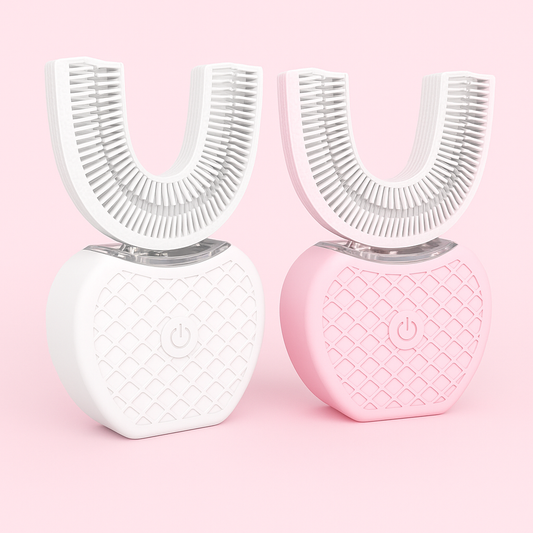Introduction
In 2025, maintaining optimal oral health is more important than ever. With advancements in dental technology and a wealth of information available, achieving a brighter smile is within everyone's reach. This essential guide will provide you with valuable tips and tricks to help elevate your oral health this year, ensuring you not only look good but feel great too.
Understanding Oral Health
Oral health encompasses more than just having a bright smile; it significantly impacts your overall well-being. Good oral hygiene helps prevent dental issues such as cavities, gum disease, and bad breath. Here are some fundamental aspects of oral health:
- Regular dental check-ups: Preventative care can save you from costly treatments in the future.
- Proper brushing and flossing techniques: Mastering these techniques is key to effective oral care.
- Healthy eating habits: Your diet plays a crucial role in your dental health.
- Staying hydrated: Water helps wash away food particles and bacteria.
The Importance of Oral Hygiene
Maintaining good oral hygiene is essential not just for your mouth but also for your overall health. Poor oral hygiene can lead to serious health conditions, including heart disease and diabetes. Here’s why oral hygiene should be a priority:
- Prevention of Tooth Decay: Brushing and flossing regularly prevent the buildup of plaque, which causes tooth decay.
- Gum Disease Prevention: Regular cleaning helps prevent gum inflammation and associated diseases.
- Reduced Risk of Systemic Diseases: Oral health is linked to various systemic conditions, making it crucial to maintain.
Daily Oral Care Routine
Creating a consistent daily oral care routine is essential for maintaining good oral health. Here are some steps to follow:
- Brush Twice Daily: Use fluoride toothpaste and brush your teeth for at least two minutes each time. Make sure to cover all surfaces of the teeth.
- Floss Daily: Flossing removes plaque and food particles between teeth that your toothbrush may miss. Consider using floss picks or water flossers if traditional floss is challenging.
- Use Mouthwash: An antibacterial mouthwash can help reduce plaque, gingivitis, and bad breath. Look for a mouthwash that contains fluoride for added protection.
- Scrape Your Tongue: Using a tongue scraper can help remove bacteria and improve your breath.
Nutrition and Oral Health
Your diet plays a crucial role in your oral health. Here are some dietary tips to consider:
- Limit Sugary Foods and Drinks: Sugar can contribute to tooth decay, so opt for healthier snacks. Avoid frequent snacking on sugary items.
- Eat Crunchy Fruits and Vegetables: Foods like apples, carrots, and celery can help clean your teeth naturally while providing essential nutrients.
- Include Dairy Products: Cheese, yogurt, and milk provide calcium and phosphate, which are beneficial for teeth. They help strengthen enamel and protect against decay.
- Stay Hydrated: Drinking plenty of water is vital for your oral health. It helps wash away food particles and bacteria. Opt for fluoridated water when possible.
Innovative Dental Technologies in 2025
In 2025, dental technology has advanced significantly, making oral care easier and more effective. Here are some innovations that can aid in your oral health journey:
- Smart Toothbrushes: These toothbrushes provide feedback and track your brushing habits through smartphone apps, ensuring you brush effectively.
- Teledentistry: Remote consultations enable you to connect with dental professionals from the comfort of your home. This is particularly useful for follow-up visits or minor concerns.
- 3D Printing: This technology is revolutionizing the creation of dental prosthetics and aligners, providing patients with quicker and more accurate solutions.
- AI Diagnostics: Artificial intelligence is now being used to analyze dental images and identify issues quickly and accurately.
- Laser Dentistry: Laser technology is being used for various procedures, reducing discomfort and recovery time.
Regular Dental Visits
Even with a robust oral care routine, regular visits to the dentist are vital. Here’s what you can expect from your dental check-ups:
- Professional Cleaning: Dentists can remove tartar and plaque that regular brushing may miss, providing a deep clean.
- Early Detection: Routine exams help identify potential dental issues before they become serious, allowing for timely intervention.
- Personalized Advice: Your dentist can provide tailored recommendations based on your unique oral health needs and lifestyle.
- Fluoride Treatments: Your dentist may recommend fluoride treatments to strengthen your enamel and prevent cavities.
Addressing Common Oral Health Issues
Being aware of common oral health issues is crucial. Here are some of the most prevalent concerns and how to address them:
- Cavities: Regular brushing, flossing, and dental check-ups can help prevent cavities. Consider sealants for added protection.
- Gum Disease: Early signs include swollen or bleeding gums. Maintain good oral hygiene and consult your dentist if you notice these symptoms.
- Bad Breath: Often caused by poor oral hygiene, bad breath can also be a sign of other health issues. Maintain a consistent oral care routine and discuss persistent issues with your dentist.
- Tooth Sensitivity: Sensitivity can occur due to worn enamel or gum recession. Use toothpaste designed for sensitivity and consult your dentist for treatment options.
Special Considerations for Different Age Groups
Your oral health needs can change at different stages of life. Here’s how to address oral health for various age groups:
- Children: Start dental visits early and ensure they understand the importance of brushing and flossing. Sealants can help protect their teeth.
- Teens: Encourage good habits and regular dental visits, especially if they have braces or other orthodontic appliances.
- Adults: Maintain a consistent routine and consider preventive care options, such as fluoride treatments and dental cleanings.
- Seniors: Pay attention to changes in oral health, such as dry mouth or tooth loss, and consult your dentist about appropriate treatments.
Conclusion
Elevating your oral health in 2025 is achievable by implementing these tips and tricks. By maintaining a diligent oral care routine, making smart dietary choices, utilizing innovative dental technologies, and visiting your dentist regularly, you can ensure a healthier, brighter smile for years to come. Remember, a commitment to oral health is a commitment to your overall well-being!
In conclusion, prioritize your oral health this year. Make small changes to your routine, stay informed about the latest dental technologies, and don't hesitate to reach out to your dental professional for guidance. A brighter, healthier smile is just a few good habits away!


